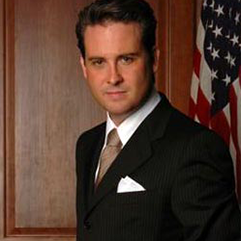FAQS: COVID-19 VACCINATION POLICIES IN THE WORKPLACE
As COVID-19 vaccines become more widely available, employers shoulder consider and craft their workplace vaccination policies. Along with devising a clear policy, employers should plan how they will communicate the policy to employees and what resources are needed to support implementation.
To help you create the best vaccination policy for your workplace and workforce, our team shares answers to frequently asked questions.
Can employers require their employees to be vaccinated?
Yes, employers can require vaccination as long as they can make the case that mandatory vaccination is “job related and consistent with business necessity.” In workplaces where employees come into frequent, close contact with coworkers or members of the public and there is a high risk of the virus being transmitted, vaccination may be a business necessity.
What accommodations must employers make to comply with EEO laws?
To comply with the Americans with Disabilities Act and Title VII of the Civil Rights Act of 1964, employers must make reasonable accommodation for:
- Employees who have disabilities that prevent them from being vaccinated
- Employees who have sincerely held religious beliefs that conflict with receiving a vaccine
Employers do not have to make exceptions for employees seeking accommodation for their non-religious beliefs or medical opinions.
The Equal Employment Opportunity Commission has released guidance on how employers can implement vaccine policies and remain compliant with EEO law (section K). This guidance also details how employers can respond to COVID-19 without violating anti-discrimination laws. Employers considering mandatory vaccination should review the EEOC guidance carefully and develop a process for employees to request accommodation.
What factors should employers consider in developing their policies?
The need for mandatory vaccination will vary between industries and job roles. Industries such as hospitality, retail, education, and healthcare that are rooted in face-to-face interactions are more likely to require employees get vaccinated. In situations where employees can work from home or are based in offices with less frequent interaction with the public, vaccinations are not likely to be required.
To decide whether vaccination should be mandatory and if a mandatory policy should apply to all employees, employers should consider their specific context and evaluate the degree of risk in their workplace and in specific job roles. Employees in industries such as healthcare may eventually be required by federal or state regulation to get a vaccine, so employers should monitor guidance for their industry.
What are most employers doing?
Most employers are implementing a voluntary vaccination policy. They are strongly encouraging employees to get vaccinated but not requiring it.
To encourage voluntary vaccination, employers should pay employees for the time off needed to get the vaccine. They may also want to identify a preferred vaccine provider and cover the cost of vaccination. Note that employers with mandatory vaccination policies will most likely have to count employees’ time getting the vaccine as hours worked to comply with the Fair Labor Standards Act (FLSA).
Voluntary vaccination is the best path for employers not in a high-risk industry. It reduces the administrative burdens of implementing and enforcing the policy. Since vaccination can be a divisive issue, a voluntary policy also minimizes the chance of disruption in the workplace.
What are some best practices in implementing a successful vaccination policy?
Transparency and communication are the foundation of any successful workplace policy.
Employers should be transparent about what their vaccination policy is and why they created it. They should educate employees about vaccines through consistent, frequent communication that shares information from respected public health organizations. Each state has its own vaccination plan and process; we recommend monitoring your state’s plan closely and distributing this information to employees too.
Once employees are vaccinated, do they still have to wear facemasks in the workplace?
Yes. The CDC recommends vaccinated individuals continue to wear facemasks and practice social distancing when outside their own home. Experts are still learning more about how long vaccines protect individuals and whether vaccines prevent infection entirely or only prevent us from experiencing symptoms. We do know it takes a few weeks before the vaccine offers full protection and during this time individual can continue to contract and transmit the virus. Guidelines may change as more people get vaccinated and the spread of the virus slows in our communities.
Are there privacy issues to keep in mind?
As always, employers must protect employees’ medical information. Employers may ask for proof of vaccination, but they cannot share with other employees whether an employee has or has not received the vaccine.
Do all employers need a policy?
Yes. Whether employers adopt a mandatory or voluntary vaccination policy, employers should create a clear policy and distribute this policy in writing to all employees.
Having a formal policy in place reminds your employees that their health and safety is your top priority. The policy should outline what you are doing to create a safe workplace and what you expect from each employee to achieve this.
Remember that your vaccination policy, like all employee policies, must be applied and enforced uniformly. Not applying policies uniformly is a form of discrimination.
This is a developing issue. We expect more guidance to come from government agencies and public health organization about vaccination in the workplace and will update this blog as it becomes available.















